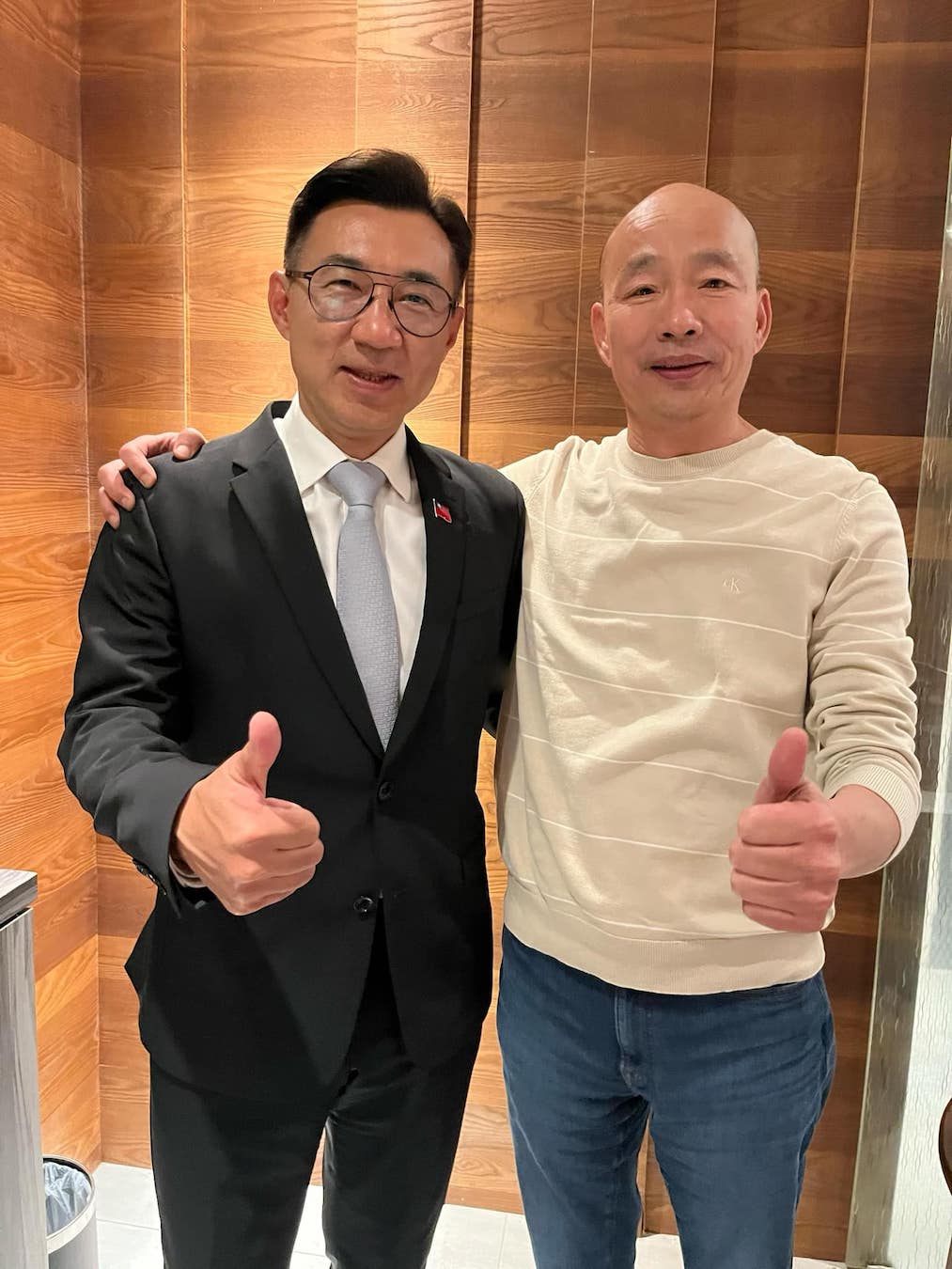by Brian Hioe
語言:
English
Photo Credit: Han Kuo-yu/Facebook
THE KMT’S 2020 PRESIDENTIAL candidate, Han Kuo-yu, has formally announced that he will be seeking the position of president of the Legislative Yuan. If Han becomes president, he will exercise a significant degree of power over the new legislature, seeing as the president sets the agenda for the legislature as a whole.
It was expected that Han could potentially become chair of the legislature if the KMT won the majority of the Legislative Yuan. The KMT signaled this by placing Han at number one on the KMT party list for campaigning. As the KMT did not win a majority, for Han to become chair will now require negotiating with other political parties in the legislature.
What surprised, however, is that Han announced he would be running on a joint ticket with Johnny Chiang, who would become vice president of the legislature. Chiang, who has maintained his seat handily in the legislature, was chair of the KMT before Eric Chu. This occurred after Chiang won the chair of the party in a by-election.
Chiang did not win re-election, leading the chair to instead become Eric Chu in September 2021. Yet during his stint as KMT chair, Chiang was viewed as a pro-reform moderate, who favored changing the party’s pro-China image.
This is the opposite of Han, who is seen as a hardliner in the KMT. Han lost the 2020 election to Tsai Ing-wen by large margins. Adding insult to injury, Han was then recalled as mayor of Kaohsiung by close to one million votes, in a recall vote in which 42% of Kaohsiung’s voter electorate participated and 97% of those who cast their votes were in favor of recalling Han. At the same time, this has not prevented Han from continuing to command a substantial following in the KMT. This is due to the Han campaigning leaning strongly into ROC nationalism and appeals to tradition.
 Johnny Chiang (left) and Han Kuo-yu (right). Photo credit: Han Kuo-yu/Facebook
Johnny Chiang (left) and Han Kuo-yu (right). Photo credit: Han Kuo-yu/Facebook
Still, pairing a hardliner with a moderate may be a new dynamic seen in the KMT. The KMT’s recently unsuccessful 2024 presidential bid also involved this combination, with moderate New Taipei mayor Hou You-yi paired with hardliner pan-Blue firebrand and media personality Jaw Shaw-kong.
The Hou-Jaw pairing was effective insofar as Jaw had many of the skills that Hou was lacking as a political candidate, in his ability to gain media headlines with inflammatory statements at a time when the Hou campaign was struggling with publicity. Likewise, the addition of Jaw to the ticket was able to mobilize traditional supporters of the KMT who likely would not have turned out for Hou.
But Hou and Jaw differed substantially in their rhetoric, raising questions as to who would be calling the shots in a new government if the Hou-Jaw ticket was successful. There was the possibility that Hou would simply shrug off Jaw and his supporters while in power or that the joint ticket would give Jaw and his “Fighting Blues” in the KMT enough power to call the shots.
By contrast, Han and Chiang do not complement each other in terms of skill set, but the clear intention with this pairing is to appeal across as broad a political spectrum with the KMT as possible. Han may be hoping to replicate what he views as the successes of the Hou-Jaw ticket.
Indeed, Han is no doubt aware that he has a checkered reputation with the general public. This is to the extent that the DPP frequently circled around this point in campaigning, highlighting that Han would probably become chair if the KMT had the majority in the Legislative Yuan, and calling on the public to not vote for the KMT if this would be the outcome.
Han has signaled openness to working with the TPP, stating that a TPP candidate could take up a position as vice president if the party committed to working with the KMT. KMT chair Eric Chu has stated that he respects this position, though there are reports of pressure from KMT legislator Fu Kun-chi, who reportedly also wants the position. Fu continues to be influential in the KMT despite his well-known history of political corruption. Chu himself currently faces calls from hardliners in the KMT to step down as chair, with the view that this would open up a power vacuum that they could fill.
In the meantime, the DPP has stated that it hopes for Yu Shyi-kun to continue to serve as the Legislative Yuan speaker. The TPP emphasizing that it would not engage in closed-door negotiations with any candidate or party and that it hoped for principles of openness and transparency to prevail in the legislature are viewed by the DPP as a signal that the TPP has not yet committed to supporting Han as legislative speaker. This may go to show the way that the TPP is stuck between a rock and a hard place at present, in that the KMT hopes to push the party into firmer cooperation, while the TPP needs to distinguish itself from the KMT without alienating supporters by backing the DPP either.

